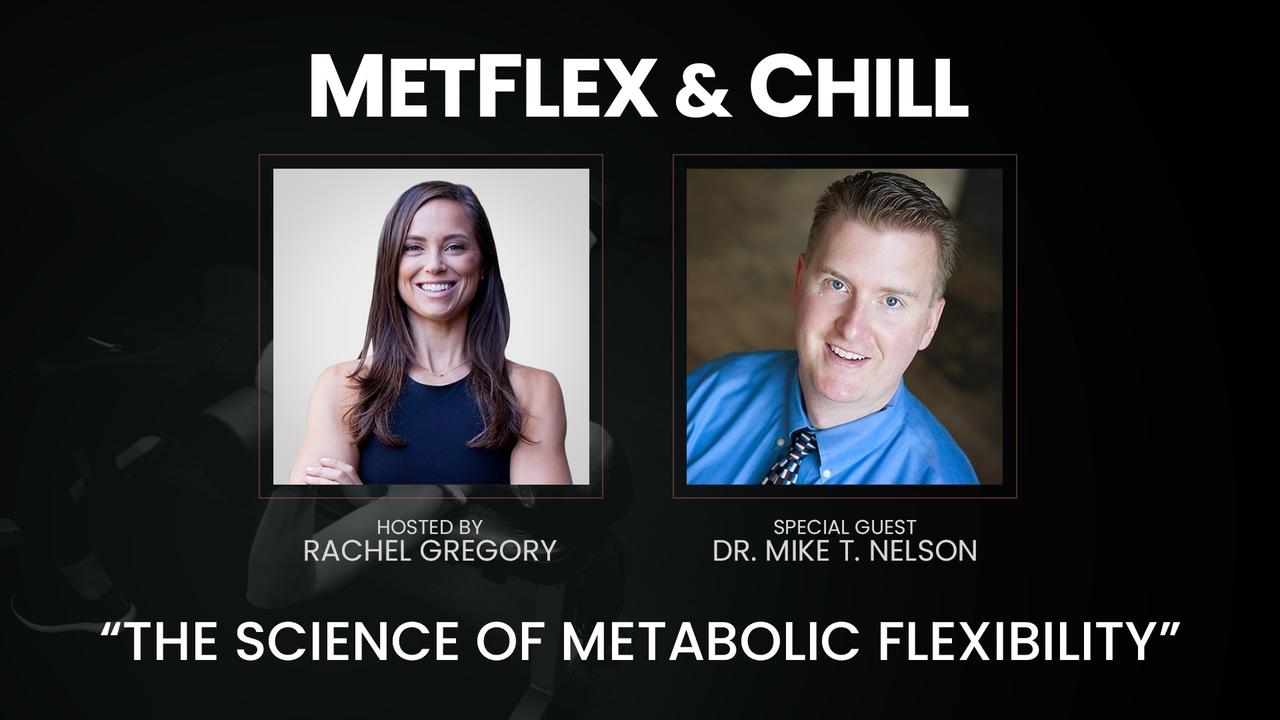
Episode 21: The Science of Metabolic Flexibility with Dr. Mike T Nelson
May 26, 2020Listeners can find Dr. Mike T. Nelson at his website www.miketnelson.com
Mike T. Nelson, PhD, MSME, CSCS, CISSN, is a research fanatic who specializes in metabolic flexibility and heart rate variability, as well as an online trainer, adjunct professor, faculty member at the Carrick Institute, presenter, creator of the Flex Diet Cert, kiteboarder, and (somewhat incongruously) heavy-metal enthusiast.
The techniques he's developed, and the results Mike gets for his clients have been featured in international magazines, in scientific publications, and on websites across the globe. In his free time, he enjoys spending time with his wife, lifting odd objects, reading research, and kiteboarding as much as possible.
In this episode, we talk about how to measure your degree of metabolic flexibility, HRV and NEAT, and potential consequences from the hyper-restriction of carbs.
Episode Top Takeaways:
- How to measure your degree of metabolic flexibility
- Potential negative effects of long-term, hyper-restriction of carbohydrates
- How to use Heart Rate Variability (HRV) to track recovery
- For most people, the amount of calories you burn through NEAT is higher than through exercise
- Mike’s top tips for becoming more metabolically flexible
Show Notes:
- [4:00] Mike’s journey into health and fitness started at St. Scholastica in Duluth, Minnesota
- [8:30] 13 years of metabolic flexibility and counting!
- [10:00] Rachel’s Ketogenic Diet and CrossFit Athletes study
- [11:30] Clamp Study: Glucose and Insulin
- [13:00] Balance is key. Adding Carbs does not mean eating Pop-Tarts every morning, but you shouldn’t always be fasting either.
- [15:00] Continuous Glucose Monitoring
- [16:00] 1 week of “normal eating.” and then 24 hours of fasting vs. Poptarts and Cookies… but sleep and stress have a much bigger impact than expected
- [16:30] Mike backs up a common theme of the show. If you hyper-restrict carbs, you may become very sensitive to them!
- [18:00] Should I do a ketogenic diet? A common question Mike is asked
- [21:00] Dom D’Agostino is a great example of long-term ketogenic lifestyle, but it’s not for everyone
- [23:00] Regardless of a ketogenic lifestyle, the brain wants to use Glucose. It also takes priority on using any available glucose. This can lead to your muscles being more insulin resistant.
- [25:00] Re-Feeding does not necessarily change everything right away. And a cyclical keto diet is often very difficult to execute appropriately acutely.
- [26:00] Down-regulation of enzymes for carb-uptake
- [27:00] High-Fat, Low-Carb diet can cause PDH to change
- [28:00] The Dr. Volek FASTER study concludes: Elite Level of Athletics likely require consistent Carbohydrate levels in your standard diet. You likely lose 3% to 8% of overall output
- [31:30] The “Metabolic Cart”
- [33:00] Heart Rate Variability (HRV) and millisecond changes in heart rate
- [34:00] Parasympathetic vs. Sympathetic systems and the costs of exercise
- [35:00] HRV monitors and their efficacy
- [42:00] The “Whoop Band”
- [44:30] HRV and sleep tracking
- [47:00] Minor changes in lifestyle can lead to massive changes in sleep quality
- [50:00] Non-Exercise Activity Thermogenesis (NEAT)
- [52:30] Changes in exercise are not necessarily correlated directly to the amount of activity
- [57:00] “obviously your nutrition is a big piece of the puzzle. But there's like all these other pieces that we still need to pay attention to.” - Rachel
- Mike Nelson’s top tips to becoming more metabolically flexible
- More Protein
- Increasing NEAT
- More “formal exercise”
Listen to the full episode HERE.
---
Join the FREE MetFLex Life Course: www.metflexandchill.com
Rachel Gregory (@rachelgregory.cns) is a Board-Certified Nutrition Specialist, Strength and Conditioning Specialist, and Author of the best-selling book, 21-Day Ketogenic Diet Weight Loss Challenge. She received her Master’s Degree in Nutrition & Exercise Physiology from James Madison University and Bachelor’s Degree in Sports Medicine from the University of Miami.
Rachel helps her clients transform their lives by starting with the physical (body), realizing the power of the mental (mindset), and ultimately gaining massive confidence that bleeds into every aspect of their lives (family, relationships, work, etc.).
Ready to join a group of strong, confident, badass women?
Don't miss a beat!
Get my weekly tips, exercises, recipes, and more fun stuff to your inbox every Friday.
Your information is safe.







